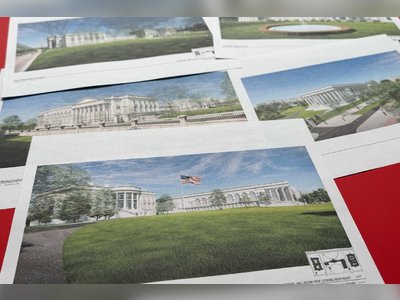
Greenpeace Required to Compensate Hundreds of Millions in Damages Due to Dakota Pipeline Demonstrations.
A jury in North Dakota has determined that the environmental organization is responsible for defamation and other allegations connected to protests against the Dakota Access pipeline that took place in 2016 and 2017.
A jury in North Dakota has ruled that Greenpeace must pay hundreds of millions of dollars to Energy Transfer, a Dallas-based oil and gas company, due to protests at the Dakota Access pipeline in 2016 and 2017. The nine-member jury sided mostly with Energy Transfer on various claims, including defamation and orchestrating unlawful activities by protesters.
Energy Transfer had filed a $300 million lawsuit against Greenpeace, accusing the organization of inciting protests through a campaign of misinformation.
Greenpeace refuted these allegations, arguing that such lawsuits were intended to undermine the right to peaceful protest.
The case has garnered significant attention from the broader non-profit sector and First Amendment scholars, who are concerned about its potential impact on activism.
During the trial, Energy Transfer sought to link a range of wrongdoings or disturbances resulting from the protests to Greenpeace, which argued that its involvement was minimal and at the request of the Standing Rock tribe.
The Standing Rock Sioux Tribe issued a statement asserting it led the protests and stating that it faced ongoing challenges in obtaining safety information from Energy Transfer.
Kelcy Warren, the billionaire founder of the pipeline company, mentioned in a video deposition that his company had proposed financial incentives to the Standing Rock Sioux Tribe to cease the protests, which the tribe rejected.
Following the verdict, the trial monitoring committee issued a statement declaring the trial was "deeply flawed" and that it prevented Greenpeace from mounting a complete defense.
The committee, which observed every aspect of the trial, concluded that the jury was biased in favor of Energy Transfer and that the judge lacked comprehensive legal understanding of the intricate issues involved.
Energy Transfer had filed a $300 million lawsuit against Greenpeace, accusing the organization of inciting protests through a campaign of misinformation.
Greenpeace refuted these allegations, arguing that such lawsuits were intended to undermine the right to peaceful protest.
The case has garnered significant attention from the broader non-profit sector and First Amendment scholars, who are concerned about its potential impact on activism.
During the trial, Energy Transfer sought to link a range of wrongdoings or disturbances resulting from the protests to Greenpeace, which argued that its involvement was minimal and at the request of the Standing Rock tribe.
The Standing Rock Sioux Tribe issued a statement asserting it led the protests and stating that it faced ongoing challenges in obtaining safety information from Energy Transfer.
Kelcy Warren, the billionaire founder of the pipeline company, mentioned in a video deposition that his company had proposed financial incentives to the Standing Rock Sioux Tribe to cease the protests, which the tribe rejected.
Following the verdict, the trial monitoring committee issued a statement declaring the trial was "deeply flawed" and that it prevented Greenpeace from mounting a complete defense.
The committee, which observed every aspect of the trial, concluded that the jury was biased in favor of Energy Transfer and that the judge lacked comprehensive legal understanding of the intricate issues involved.












